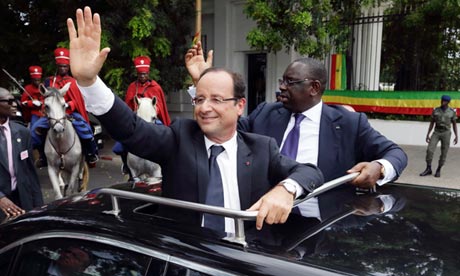At the Socialist Party conference in Toulouse on Saturday, recently elected Socialist Party leader Harlem Désir caused a stir when he reminded the crowd of President François Hollande's pledge to give foreign residents the opportunity to vote in local elections. This certainly would help foreign residents to participate and become more involved in public life and seems fair seeing as they pay full taxes. Only residents that reside within the EU can vote in local elections. The UK currently allows citizens of the European Union and commonwealth citizens to vote in local elections in the UK.
This longstanding bill has been in the pipeline for a number of years now and was originally promised by former Socialist president François Mitterrand during his 1981 campaign. Former French President Nicolas Sarkozy opposed the bill even though he backed it during his presidential campaign in 2007. Further delay has now occurred with it looking unlikely that the bill will have enough support over the next six months for it to become law in time for the 2014 local elections. In 2000, France’s lower house agreed a bill giving all legal foreign residents the right to vote in local elections—but it was never finalised with the upper house. There is now a petition on the UMP website to oppose the bill with one of their reasons being that this will thwart the "blue" tidal wave at the next local elections.
75 Socialist French MPs presented a petition in Le Monde urging the current government to move faster on plans to give foreign residents the right to vote and run as candidates in local elections. Not all Socialists are in favour of the bill however, with Prime Minister Jean-Marc Ayrault describing the bill as “controversial” and “lacking support in parliament” in an interview with radio station France Inter last Wednesday. Adopting this bill would need another get over another major hurdle which would be a change in the French constitution which states that electoral rights are reserved to "French nationals “only. There are also fears that if the bill is adopted the Front National could use it as a platform for negative campaigning against the Socialists.
A poll on the topic by French daily le Parisien in late 2011 found 61% of respondents agreeing that foreigners should have the right to vote in France’s local elections. A more recent poll published last month found the exact opposite result, with 61% of respondents against the bill. Time will soon tell whether Hollande’s election promise can be fulfilled.

